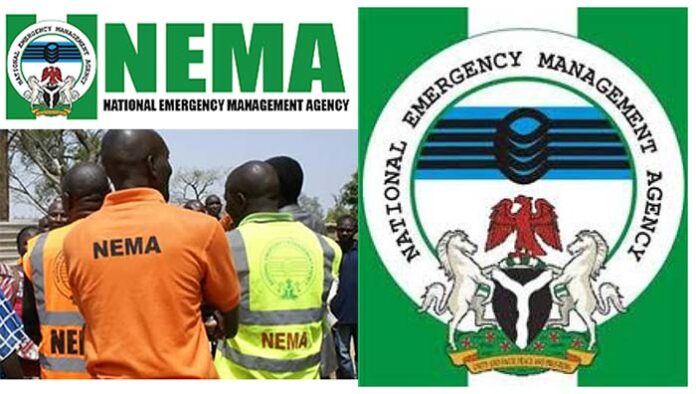The National Emergency Management Agency (NEMA) has warned that flooding due to predicted above-normal rainfall can erode roads and bridges which may hinder the movement of people, goods and services in the country.
The agency also predicted that high rainfall might cause an epidemic, low agriculture output among others.https://scudnewsng.com
This is contained in its 2021 Disaster Risk Management Implications of the Nigerian Seasonal Climate Prediction and Annual Flood Outlook, presented to the public by the Director-General of the agency, Mr Ahmed Habib, in Abuja.
The document which was put together by a 21-member technical committee of emergency stakeholders recommended strategic planning against flood disasters for various sectors of the economy.
Reports indicated that the Nigeria Meteorological Agency (NiMet) in its 2021 Seasonal Climate Prediction, predicted an annual rainfall amount to be normal to above normal for most parts of the country.
Reports said the Nigeria Hydrological Services Agency (NIHSA) in its Annual Flood Outlook, predicted river flooding to be expected in Anambra, Adamawa, Bayelsa, Benue, Delta, Edo, Jigawa, Kebbi, Kogi, Kwara, Nasarawa, Niger, Rivers and Taraba.
Coastal flooding according to NIHSA was expected in Bayelsa, Cross River, Delta, Ondo, Lagos and Rivers due to a rise in sea level and tidal surge.
On account of poor drainage facilities, flash and urban flooding were forecast to occur in Ibadan, Lagos, Port-Harcourt, Sokoto, Kaduna, Yola, Maiduguri, Makurdi, Hadejia and other major cities.
For the health sector, the agency warned that due to heavy rainfall and extreme temperatures, there might be an increase in malaria, water-borne as well as vector-borne diseases.
It added that poor drainage systems could give rise to cholera, typhoid, diarrhea, skin diseases in areas likely to have flooding.
For the agricultural sector, the document noted that the above-normal rainfall might give rise to high agricultural production but could result in flooding and washing away of agricultural land.
It stated that shell quality and egg weight in poultry layers might be affected as a result of expected warmer than normal temperatures.
The document, however, outlined recommendations to guard against flood disasters for sectors, such as Agriculture, Water Resources, Health, Transportation and Infrastructure among others.
For the transport sector, the document added that dam reservoirs might be over-stretched due to resulting in spillages or emergency water release among others.
It, however, recommended the use of concrete in the construction of roads and tarmac by the Federal Ministry of Works and Housing, Nigerian Building and Road Research Institute among others.
It further called on the Federal Road Safety Corps, National Orientation Agency, National Union of Road Transport Workers, Civil Defence and the media to intensity sensitisation campaigns to road users to ensure proper vehicle maintenance prior to the onset of the cold period.
The document, however, recommended that the Federal Ministry of Health as well as NEMA carried out advocacy visits to state governments and other relevant stakeholders on the implications of the Seasonal Climate Predictions.
It further recommended that the Ministry of Health and its state counterparts stepped up training and retraining of health workers as part of preparedness.
It also recommended that the Federal Ministry of Agriculture encouraged the planting of crops of early maturing variety for areas that might experience delayed onset or early cessation.
It also called for the education of livestock farmers on disease prevention methods and pest control measures in areas that might experience normal to above normal rainfall among others.
The document, however, noted that to build flood resilient communities in the country, citizens must imbibe attitudinal change toward warnings for flood prevention by government agencies and desist from unethical practices.
It also recommended the removal of people living along waterways and those having socio-economic activities on flood plains by states and local governments among others.

